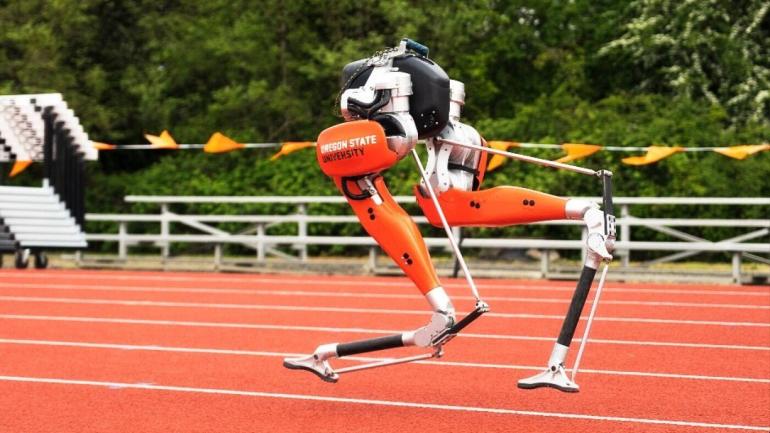
A bipedal robot named Cassie just set an official Guinness World Record by running 100 meters in 24.73 seconds. With knees that bend like an ostrich's, Cassie is the first bipedal robot to use machine learning to control a running stride on outdoor terrain. It operates with no cameras or external sensors.
The achievement occurred on May 11, 2022, but Oregon State University recently shared the story and video. Cassie ran the historic 100-meter dash at OSU's Whyte Track and Field Center. The robot started from a standing position and returned to that same position at the conclusion of the sprint with no falls.
"Cassie was trained for the equivalent of a full year in a simulation environment, compressed to a week through a computing technique known as parallelization – multiple processes and calculations happening at the same time, allowing Cassie to go through a range of training experiences simultaneously" read the official press release.
Cassie is the creation of OSU College of Engineering and was produced by Agility Robotics. Jonathan Hurst, a robotics professor, was at the helm of the development in collaboration with artificial intelligence professor Alan Fern. The project was awarded a 16-month, $1 million grant from the Defense Advanced Research Projects Agency. Cassie was introduced to the world in 2017.
In 2021, Cassie ran five kilometers in just over 53 minutes in a single charge. It could've done it faster, but about six and a half minutes were spent in troubleshooting because of overheating and getting one of its legs knocked off during a turn.
"This may be the first bipedal robot to learn to run, but it won't be the last," Hurst said in a statement. "I believe control approaches like this are going to be a huge part of the future of robotics. The exciting part of this race is the potential. Using learned policies for robot control is a very new field, and this 100-meter dash is showing better performance than other control methods. I think progress is going to accelerate from here."
















